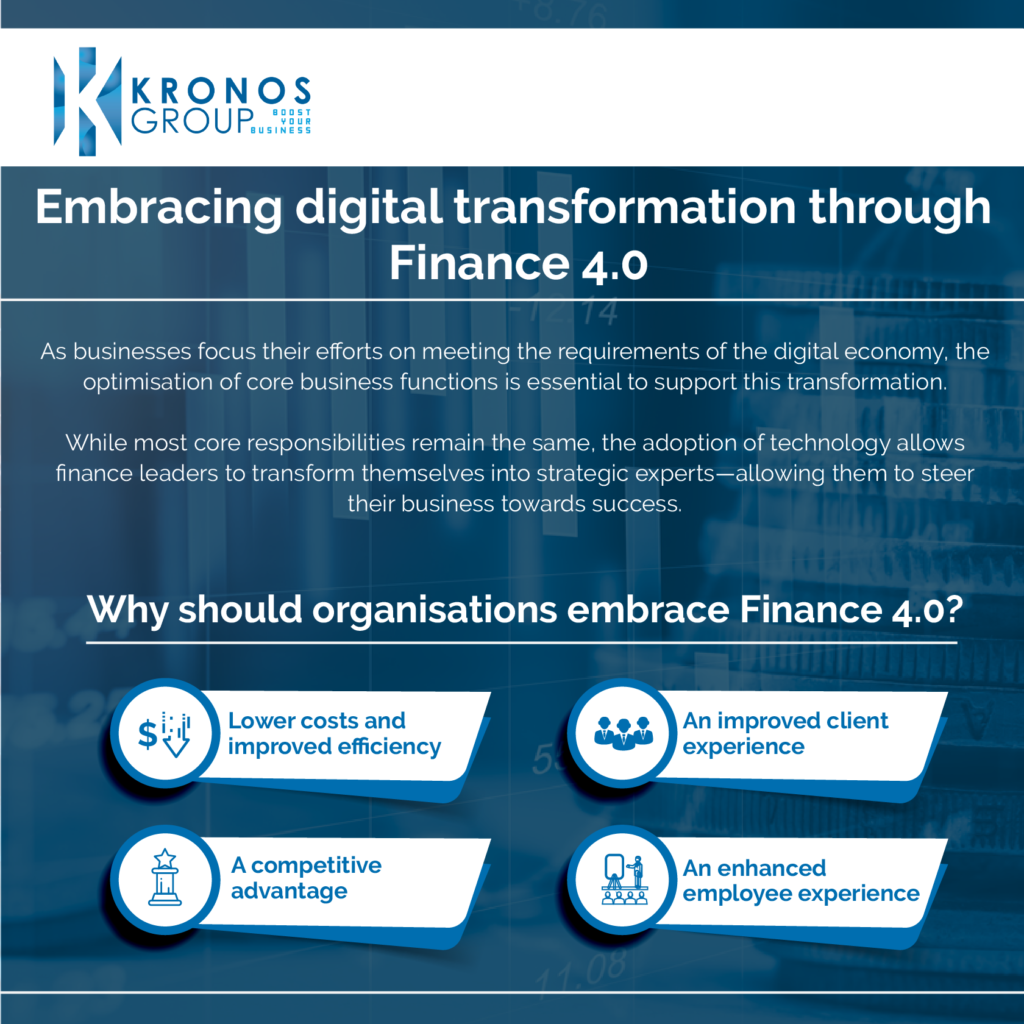Embracing digital transformation through Finance 4.0
Finance 4.0 is changing the industry seemingly faster than companies can keep up. Leveraging digital transformation can shift the tides.
By restructuring processes to meet Industry 4.0, finance departments are able to embrace more innovative management practices.
The digitalisation of finance functions has led to higher standards of operational efficiency and the adoption of more customer-oriented processes. This has led to companies perceiving sustainability not as a current trend but as a long-term goal in order to remain competitive.
It has also opened the door to stronger compliance regulations across finance departments, more transparency into procedures, accelerated timeframes, and more efficient resource allocation.
What forces have accelerated the shift to Finance 4.0?
Heightened economic uncertainty brought on by the pandemic forced digital laggards to scramble to support their processes through a digital framework and ensure their survival.
Digital transformation offers capabilities like omnichannel networks to facilitate the direct exchange of information between financial institutions and their customers as well as the ability to anticipate consumer needs more accurately through data analysis.
Finance 4.0 digital transformations are the backbone of the contemporary finance industry; creating systems that are more resilient and able to adapt proactively whilst pivoting towards innovation amidst change.
Access the infographic
By restructuring processes to meet Industry 4.0, finance departments are able to embrace more innovative management practices.
The digitalisation of finance functions has led to higher standards of operational efficiency and the adoption of more customer-oriented processes. This has led to companies perceiving sustainability not as a current trend but as a long-term goal in order to remain competitive.
It has also opened the door to stronger compliance regulations across finance departments, more transparency into procedures, accelerated timeframes, and more efficient resource allocation.
What forces have accelerated the shift to Finance 4.0?
Heightened economic uncertainty brought on by the pandemic forced digital laggards to scramble to support their processes through a digital framework and ensure their survival.
Digital transformation offers capabilities like omnichannel networks to facilitate the direct exchange of information between financial institutions and their customers as well as the ability to anticipate consumer needs more accurately through data analysis.
Finance 4.0 digital transformations are the backbone of the contemporary finance industry; creating systems that are more resilient and able to adapt proactively whilst pivoting towards innovation amidst change.

Access the infographic
Explore more insights from our team
Our eBooks















